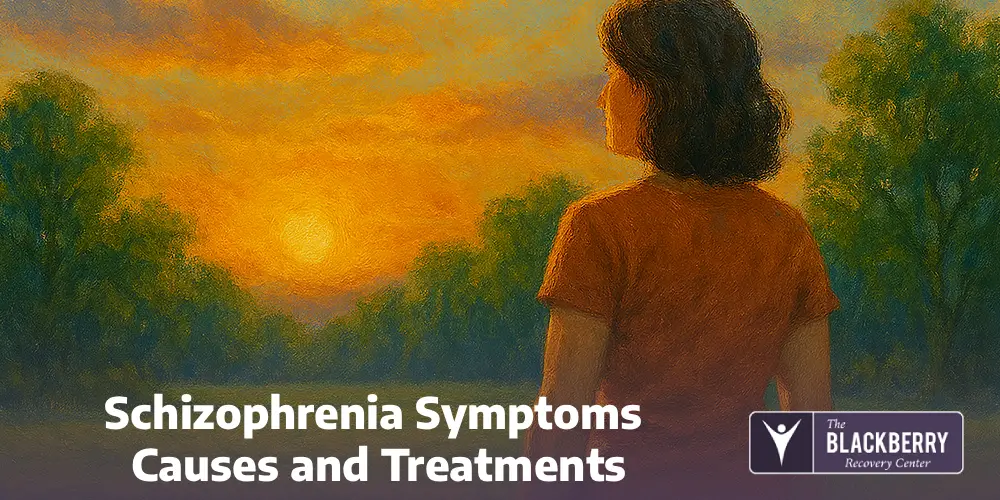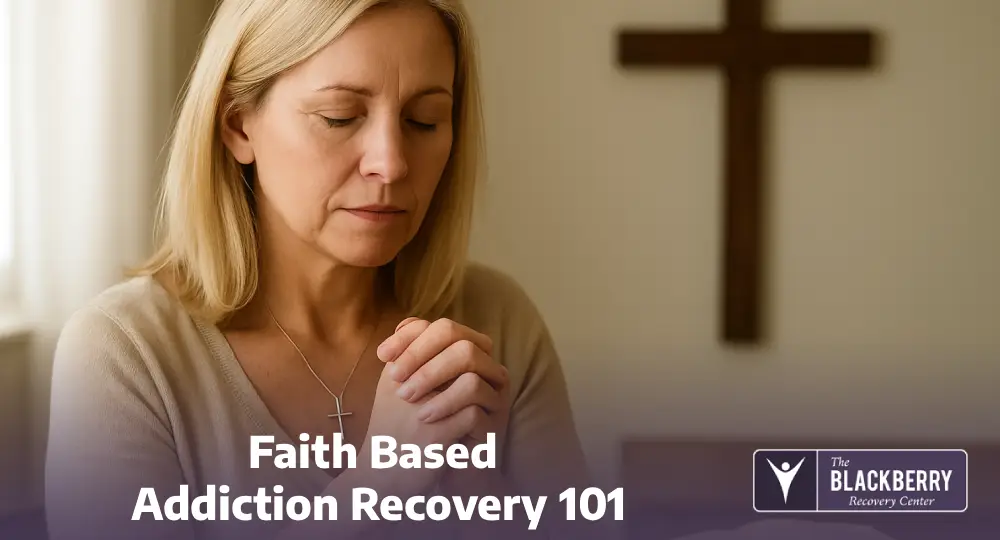Schizophrenia affects millions of people in the United States each year. Despite how many people live with the condition, people with schizophrenia often go years without a diagnosis because they are unfamiliar with the symptoms. And unfortunately, going without treatment only increases the risks of developing serious issues related to this mental health condition.
In most people, schizophrenia causes some combination of delusions, hallucinations, and difficulty thinking rationally. Let’s take a further look into these symptoms of schizophrenia and what signs you should be looking for.
What Are the Signs of Schizophrenia?
Many people have vague ideas of schizophrenia that relate to hearing voices or other stereotypical psychotic symptoms. And while these do happen, there is more to this mental health disorder than shallow stereotypes.
According to the National Institute of Mental Health, schizophrenia involves a wide variety of symptoms, most of which relate to issues with behavior, emotions, and reasoning skills. Let’s take a look at some of the most common symptoms and how they manifest in individuals:
- Hallucinations: Perceiving something that is not there is known as a hallucination. These can be visual (hallucinations you see) or auditory (hallucinations you hear), and they’re what people are referring to when they think of hearing voices as a sign of schizophrenia. Hallucinations can also affect senses like touch and taste, but this is less common. What’s important to remember, though, is that for the individual with schizophrenia, these hallucinations are usually indistinguishable from reality.
- Delusions: Similar to hallucinations, delusions make a person believe in things that are not real. However, with delusions, you might not see or hear anything out of the ordinary. Instead, you will believe things that are not true, such as, “My friends are poisoning me,” or, “The world is going to end tomorrow.” Delusions are among the most common symptoms of this mental disorder.
- Erratic thought patterns: Irregular or disorganized thought patterns are one of the most prominent cognitive symptoms of schizophrenia. These thought patterns are typically inferred from disorganized speech, or speech that does not follow a logical flow. If you display this symptom, you may speak in ways that bounce from topic to topic without a clear logical flow, and others may have trouble understanding you.
- Negative symptoms: Negative symptoms encompass the difficulties that people with schizophrenia have in navigating daily life. For you, this may look like a lack of personal hygiene, not outwardly expressing emotions, or not making eye contact. You may also lose interest in everyday activities like socializing or working, and in extreme cases, you may lose the ability to feel pleasure entirely.
The ways that people experience this mental illness vary wildly. Some people may experience all of these symptoms, while some only experience one or two. Similarly, certain symptoms may appear in an individual and then recede with time, but others may experience those symptoms consistently without a change in severity.
Now that you know the symptoms of schizophrenia, let’s examine some of this mental disorder’s possible causes.
What Causes Schizophrenia?
Because more research is needed in this area, nobody is completely sure of what causes schizophrenia. However, there are a few prevailing ideas. The current research suggests that schizophrenia develops due to a combination of genetics and environmental factors.
Preliminary research suggests that brain chemistry may be part of the physical cause of schizophrenia. Many individuals with schizophrenia have been found to have low levels of neurotransmitters (chemical messengers in the brain) like dopamine and glutamine. This creates issues by limiting the amount that different parts of the brain can communicate, which could result in schizophrenia symptoms. At present, this is our best understanding of the physical mechanism behind this mental disorder.
While nobody knows the exact cause of schizophrenia for certain, there are certain risk factors that have been correlated with this mental illness. These include:
- Having parents or grandparents who suffered from schizophrenia
- Complications during pregnancy or birth, including malnutrition or exposure to certain viruses in the womb
- Taking mind-altering drugs during your adolescent years before your brain has fully formed
Use this information to help assess your or a loved one’s risk for schizophrenia. But regardless of how this mental disorder develops, it’s important to undergo treatment for schizophrenia as soon as possible.
How Can I Treat Schizophrenia?
The American Psychiatric Association recommends two types of treatments for schizophrenia: therapy and antipsychotic medications. Because of the severity of most cases of schizophrenia, this mental illness requires long-term treatment to manage the everyday symptoms. Oftentimes, people prefer to begin their recovery with inpatient mental health treatment because it provides a safe, understanding environment where they can devote 100% of their energy to learning to manage this mental disorder.
Once enrolled in an appropriate clinical program, you can expect to undergo an evaluation with a physician and other medical staff to determine what antipsychotic medications will work for you. Finding the right medications can be a process of trial and error, so your care team may work with you to find the right medications and the right dosages. While this process may feel tedious, it’s important that you stay patient during treatment to see a recession in your symptoms.
While medication can play a large role in treatment, it is not the only treatment option available. Undergoing therapeutic mental health treatments can help you learn to cope with the remaining symptoms that your medications do not fully treat. For this reason, therapy plays an important supplementary role in schizophrenia treatment.
Some of the most common therapy treatments for this mental disorder are:
Psychotherapy:
Talk therapy is an effective way to help you learn new coping mechanisms for your mental illness. It can also help you learn new, healthier thought patterns that will make it easier for you to communicate and connect with others.
Family therapy:
Schizophrenia affects more than the individual with the mental disorder. These sessions can help repair familial relationships and give support to family members who are affected by this mental illness.
Group therapy:
Discussing mental illness symptoms with people who can understand your situation will help you find a new sense of community and understanding. Led by mental health professionals, these sessions will help you share your feelings and relate to others.
As you can see, there are a variety of schizophrenia treatments that can help you regain control of your life and mental well-being. And the sooner you begin these evidence-based treatments, the sooner you can feel like yourself again.
Video
Dr. Phil Meets with Schizophrenic 10-Year-Old | Dr. Phil
Michael and Susan say when their daughter, Jani, was born, they immediately noticed that she wasn’t like other children. They say as a newborn, Jani would sleep only three hours a day, and as she grew older, would see, hear and feel things that were not there. At 6 years old, Jani was diagnosed with early-onset schizophrenia. Now 10, Jani, who has tested with a genius IQ, spends up to 95 percent of her days in an imaginary world she calls Calalini, where more than 100 people and animals reside. Michael and Susan say Jani’s imaginary friends bring her comfort but also encourage her to act out, often in violent and destructive ways. While medication regulates her explosive tendencies, Michael and Susan say they fear for her future. They share a candid look inside their life, including the toll schizophrenia has taken on their marriage. Plus, find out why they fear their second child, Bodhi, whom they say they had as a companion for Jani, may be showing signs of the illness. And, Dr. Phil spends the day with Jani. Learn what he uncovers about her secret world. Then, Ashley, 25, was diagnosed with schizophrenia as a child and says she’s now replaced her medication with dangerous street drugs. Can Dr. Phil get her on the road to recovery?
News Audio
A new kind of drug for schizophrenia promises fewer side effects – NPR
For the first time in decades, the Food and Drug Administration has approved a new type of drug for schizophrenia.
The twice-a-day pill to be marketed by Bristol Myers Squibb will be called Cobenfy, though it had been referred to as KarXT during development. Its main advantage is that it appears to have fewer side effects than current medicines.
FAQ
- What are the early signs of schizophrenia?
Early signs may include social withdrawal, unusual thoughts, difficulty concentrating, and changes in sleep patterns. - What causes schizophrenia?
The exact cause is unknown, but it may involve a mix of genetics, brain chemistry, and environmental factors. - How is schizophrenia diagnosed?
Diagnosis usually involves a psychiatric evaluation, medical history, and ruling out other mental health or medical conditions. - What treatments are available for schizophrenia?
Common treatments include antipsychotic medications, cognitive behavioral therapy (CBT), psychosocial support, and lifestyle management. - Can people with schizophrenia live a normal life?
With early diagnosis, consistent treatment, and strong support, many individuals can manage symptoms effectively and lead fulfilling lives.




